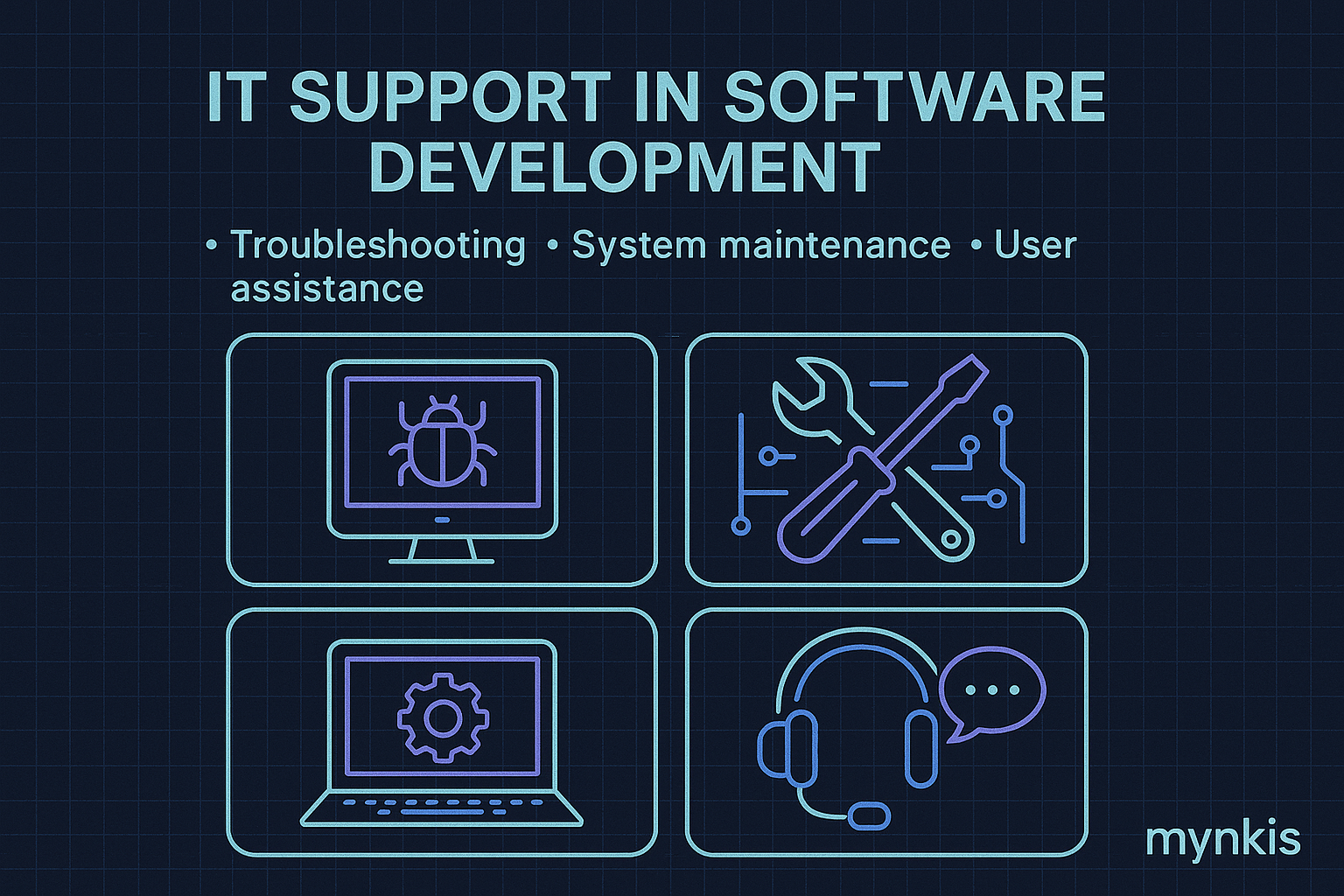Schedule a Demo
As a founder in the throes of building a tech startup, the labyrinth of decisions can be daunting. From crafting an MVP that resonates with your early adopters to laying the foundation for scalable, long-term growth, every choice matters. However, one crucial element often gets overlooked in the early stages—IT support. This isn't just about fixing bugs or troubleshooting hardware; it’s about building a robust framework that supports the complex ecosystem of software development.
The journey from a minimal viable product (MVP) to a comprehensive suite of custom software development tools can feel like crossing a vast technological ocean. Here’s where IT support sails in as your navigational aid. Whether it’s ensuring that your database can handle increasing user loads or integrating APIs seamlessly, enterprise web solutions demand a supportive IT infrastructure from the get-go.
In my experience, startups have thrived when their technical support teams became facilitators of agility. You need a team that not only has the technical prowess but also the foresight to anticipate your growth trajectory. Think of IT support not just as a service but as an integral part of your development sprints. They should be the enablers of your product’s continuous evolution, ready to pivot as you learn more about your market and refine your offering.
Software development, especially at the outset, is fraught with risks—from security breaches to server downtimes that can halt your momentum. A proactive IT team can identify potential pitfalls before they escalate into major setbacks. And hey, this could be the difference between a successful iteration and a costly revision.
Both your product and your IT infrastructure must evolve with the ever-changing tech landscape. In my interactions with fellow founders, I’ve found that those who integrate IT support into their learning loop not only stay ahead but also foster innovation within their companies. This symbiotic relationship ensures that your team can leverage new technologies to push the envelope on what your software can achieve.
When it comes to breaking down the specifics of IT support, we often see it woven through several crucial project elements:
The synergy between your development team and IT support should not be understated. As someone who has watched effective partnerships blossom, I’ve seen remarkable outcomes when both teams communicate openly. Regular meetings focused on technology strategy and roadmapping can preempt hurdles, and honestly, this makes all the difference when it comes to agile, user-focused development cycles.
While standard IT setups might suffice for others, as a founder, you’ve got to ensure your IT team grasps your business model intimately. Say you’re handling a high transaction e-commerce platform—your IT team should be prioritizing low-latency transactions and top-tier uptime. Or maybe you’re running a SaaS where scalability trumps all else. Listen up: Tailoring your IT support to address these needs isn’t optional; it’s essential.
Expansion isn’t just growth in user base but in the complexity of your product and the structure of your custom software development. A focused IT team with an eye on scalability can advise on architecture that will scale without breaking a sweat. They’ve been there, debugging at two in the morning to not miss out on the viral lift-off. Ensuring that your software can flex with growth is paramount, and a crystal ball might not work, but a skilled IT support team just might.
I invite you to peek into the future where IT and tech intertwine even more snugly. Advances in AI, blockchain, and quantum computing are set to redefine IT’s terrain in enterprise web solutions. Staying at the frontier of these developments, your IT support personnel will not only take care of the here and now but strategically guide your innovation drive.
In a particularly instructive episode from my career, our startup was on the brink of a breakthrough. Scaling our server response rates to handle a global audience was beyond imperative—it was our core growth KPI. Collaborating closely with our IT engineer, Sam, we turned our rudimentary architecture into a Goliath. Sure, we faced slowdowns, but considering Sam's experience scaling similar projects in established companies, we made decisions with rocket precision. Within weeks, we bridged performance gaps that would’ve otherwise stalled us for months.
Undoubtedly, IT support plays a star role in the software development odyssey from MVP to an expansive, enterprise-level product. Aligning your teams, foresight for scalability, and hands-on expertise isn’t just good practice—it embodies what’s essential for sustainable innovation in today’s business climate.
